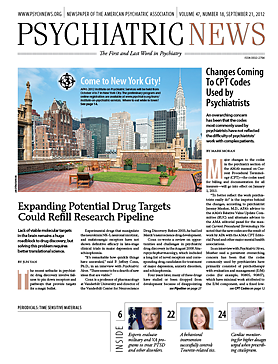Although youth with Tourette syndrome tics often outgrow them, some individuals do not. And while antipsychotic medications can be helpful, they can also have undesirable side effects.
Thus Sabine Wilhelm, Ph.D., an associate professor of psychiatry at Harvard Medical School, and her colleagues studied a behavioral therapy to see whether it could help adults with Tourette tics. The results looked promising, they reported in the August Archives of General Psychiatry.
The therapy is called the comprehensive behavioral intervention for tics (CBIT). It consists of several strategies—training patients to become aware of their tics, helping them consider the impact of various situations on their tics and finding ways to manage these situations, and teaching them to use different behaviors to counter tic urges. For example, if a patient has the urge to engage in a shoulder tic, he might tense his arm muscles while pushing his elbow against his torso to ward it off. Or if a patient has an urge to lick her lips, she might press her lips together and clench her jaw to suppress the urge.
For the study, Wilhelm and her colleagues recruited 122 adults who were experiencing Tourette tics. The subjects were randomized to receive eight sessions of CBIT or a control intervention (a supportive treatment) for 10 weeks. The subjects were evaluated for their tics both at the start of the study and at weeks 5 and 10 of training with two instruments—the Yale Global Tic Severity Scale and the Clinical Global Impressions-Improvement Scale (CGI-I)—by a clinician masked to treatment assignment. Two possible confounders, initial tic severity and tic medication use, were taken into consideration.
Individuals who had received CBIT experienced, on average, a significantly greater decrease in scores on the Yale Global Tic Severity Scale than did individuals who had received the control intervention. Over a third of the individuals who had received CBIT were improved or very much improved according to their scores on the CGI-I, compared with only 6 percent of individuals who had received the control intervention.
The researchers’ positive response rates were somewhat lower than those in a previous study in which the researchers examined the effects of CBIT on children with Tourette tics, Wilhelm explained to Psychiatric News. The reason that they obtained somewhat better results in children than in adults, she speculated, may be because adults have a more chronic form of the disorder and hence are more difficult to treat. “Future research by our team may provide insight into who should be selected for this treatment,” she said. “We also plan to conduct research that will shed light on the underlying mechanism of CBIT.”
Meanwhile, CBIT “is clinically available, and several efforts are under way to increase the number of trained CBIT providers,” she pointed out. “The Tourette Syndrome Association and the U.S. Centers for Disease Control and Prevention have formed a partnership with the goal of educating clinicians about Tourette syndrome and CBIT, and more than 60 such workshops have been conducted already.”
The study was funded by the National Institutes of Health, the Yale University Clinical and Translational Sciences Award, and the Tourette Syndrome Association.


